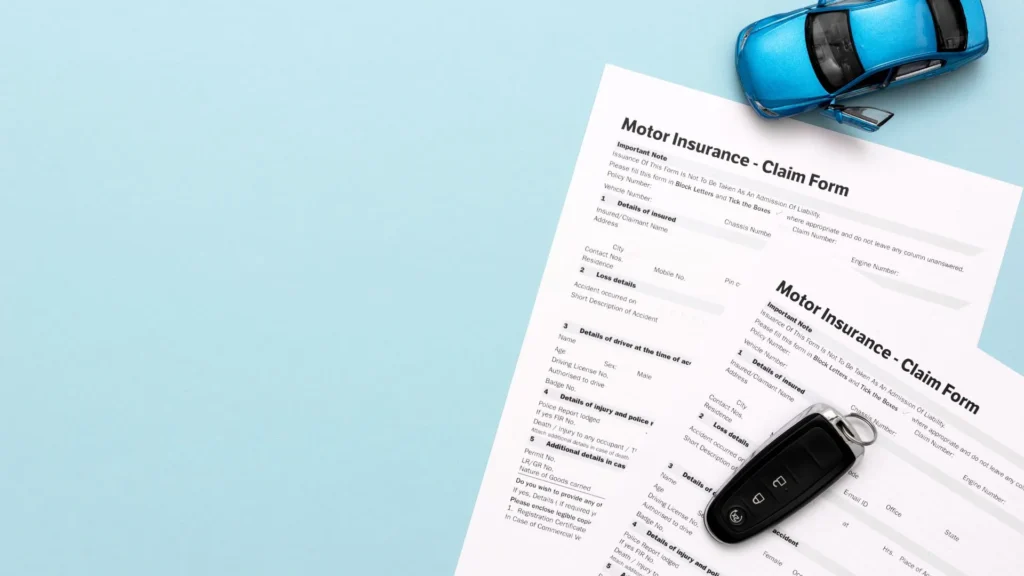America is one of the world’s biggest car markets, with around 14 million registered vehicles (new) across different states in 2022. For those who own cars, auto insurance is a crucial financial tool that offers security and peace of mind. Whether you’re a seasoned driver or a first-time car owner, it’s critical to comprehend what is auto insurance and the various aspects covered under it.
The accurate details of what’s covered in an auto insurance policy depend on the requirement for minimum coverage in your state. Most states in the US mandate drivers to have minimum liability coverage for bodily injury and property damage. This article will discuss what is auto insurance, its function, how to get it, and the many advantages it provides.
What is Auto Insurance?
What is auto insurance? A vehicle owner and an insurance provider enter into a contract for car insurance for financial security against potential losses brought on by theft, accidents, and vandalism, among other harms.
The insurance provider accepts the risk of covering any costs associated with such incidents up to the limits established in the policy in exchange for regular premium payments.
What is Auto Insurance Used For?
The main goal of car insurance is to offer financial security to your vehicle in the event of an accident or other unexpected situations. Auto insurance covers a number of aspects, including:
- Liability Coverage: This aspect of auto insurance protects you financially if an accident caused by you leads to bodily injury or property damage to others. It covers legal fees, medical expenses, and property repairs or replacements.
- Property Damage Coverage: It pays for any damages to your vehicle due to collisions, accidents, or incidents like theft, fire, or vandalism.
- Personal Injury Protection (PIP): Personal Injury Protection coverage helps cover expenses related to medical treatment, salary lost due to accident, and related costs for both you and your passengers, regardless of who caused the accident.
- Uninsured/Underinsured Motorist Coverage: It protects you in case of an accident with a driver without insurance or lacks the necessary coverage in their policy.

See Also: Is Car Insurance Tax Deductible?
How Do I Get Auto Insurance?
Assess Your Coverage Needs
Consider your needs, including your budget, risk tolerance, and the value of your car. Consider elements like your driving style, neighborhood, and the degree of coverage you want.
Research Different Insurance Providers
Spend some time learning about various insurance providers by conducting research. Find trusted companies with a proven track record of rapid claim processing, excellent customer service, and reasonable prices. Consider checking out online reviews, asking friends and family for advice, or speaking with an insurance representative.
Obtain Quotes
To get numerous estimates, speak with insurance firms directly or use online price comparison tools. Give precise details about your car, driving history, and personal information. It will help insurance companies provide accurate rates based on your unique situation.
Compare Coverage Options
Examine the policy specifics and coverage alternatives listed in each quote. Carefully analyze different types of coverage available and the coverage limitations, deductibles, and any extra features or advantages. Based on your budget and coverage requirements, compare the quotes.
Understand Policy Terms and Conditions
Carefully review all the terms and conditions of the policy after choosing a potential insurance provider. Be mindful of any exclusions, restrictions, and unique clauses affecting your coverage. Know the duration, renewal procedure, and cancellation rules of the policy.
Does car insurance cover flat tires? Find out more.
Seek Clarification
If you have any doubts about your policy, please ask the insurance company or agency for your answers. It is important to have a clear understanding of what your policy offers and all terms or conditions.
Make the Purchase
Contact your insurance company to proceed with the purchase once you are satisfied with your policy. Provide the necessary information and complete the application process. The insurance provider may ask you to make an initial premium payment or set up a payment plan.
Provide Required Documents
The insurance company may request specific documents to complete the underwriting process, including a copy of your driver’s license, vehicle registration, or proof of prior insurance coverage. Ensure you promptly provide all requested documents to ensure the timely finalizing of your policy.
Proof of Insurance
After purchasing the policy, the insurance company will give a proof of insurance document to prove that you have valid auto insurance coverage. Keep this document in your vehicle at all times and provide it when necessary, such as during vehicle registration or in case of an accident.
Benefits of Auto Insurance
Getting auto insurance offers numerous benefits, such as financial protection, legal compliance, peace of mind, and additional emergency support. Let’s explore these benefits in detail:
Financial Protection
Auto insurance protects you from potential financial burdens from accidents, theft, or damages to your vehicle or others’ property. It covers the costs of repairs, medical expenses, legal fees, and property damage, depending on the coverage you select.
Legal Compliance
In many jurisdictions, having auto insurance is a legal requirement. It helps you comply with legal obligations and avoid penalties, fines, or legal consequences that may arise from driving without insurance.
Peace of Mind
Knowing that you have insurance coverage provides peace of mind while driving. It reduces the stress and worry of potential accidents, damages, or liabilities. Knowing you are financially protected with your auto insurance, you can focus on enjoying your journey.
Assistance in Emergency Situations
Some auto insurance policies offer additional benefits, such as roadside assistance. In case of a car breakdown, flat tire, or any other unexpected situation, you can receive timely help, including towing services, battery jump-start, fuel delivery, or locksmith services. This will ensure you are not stranded on the road and can get back on track promptly.
Access to Preferred Repair Shops
Many insurance providers partner with preferred repair shops or networks of approved service centers. Your insurance can direct you to these trusted facilities if your vehicle needs repair or maintenance. This ensures that your car receives high-quality repairs and the claims process is streamlined.
Protection against Uninsured/Underinsured Motorists
Uninsured/underinsured motorist coverage is an essential aspect of auto insurance. It protects you if you are involved in an accident with a driver without insurance or sufficient coverage. In such cases, the insurance will cover all damages and medical expenses and you are not left with financial burdens due to someone else’s negligence.
Coverage for Personal Injury and Medical Expenses
Some auto insurance policies offer personal injury protection (PIP) coverage. This coverage provides essential financial support for medical treatment and recovery.
Rental Car Coverage
Auto insurance may offer rental car coverage if your vehicle is damaged and requires repairs. It will be beneficial when your vehicle is being repaired and you are required to continue your daily activities without disruption.
Conclusion
So, what is auto insurance? It is essential for vehicle owners for financial protection and peace of mind. It covers various aspects, including liability, property damage, personal injury, and uninsured motorist protection.
By understanding what auto insurance is, assessing your coverage needs, and selecting a reputable insurance provider, you can enjoy the benefits of having comprehensive auto insurance coverage





























